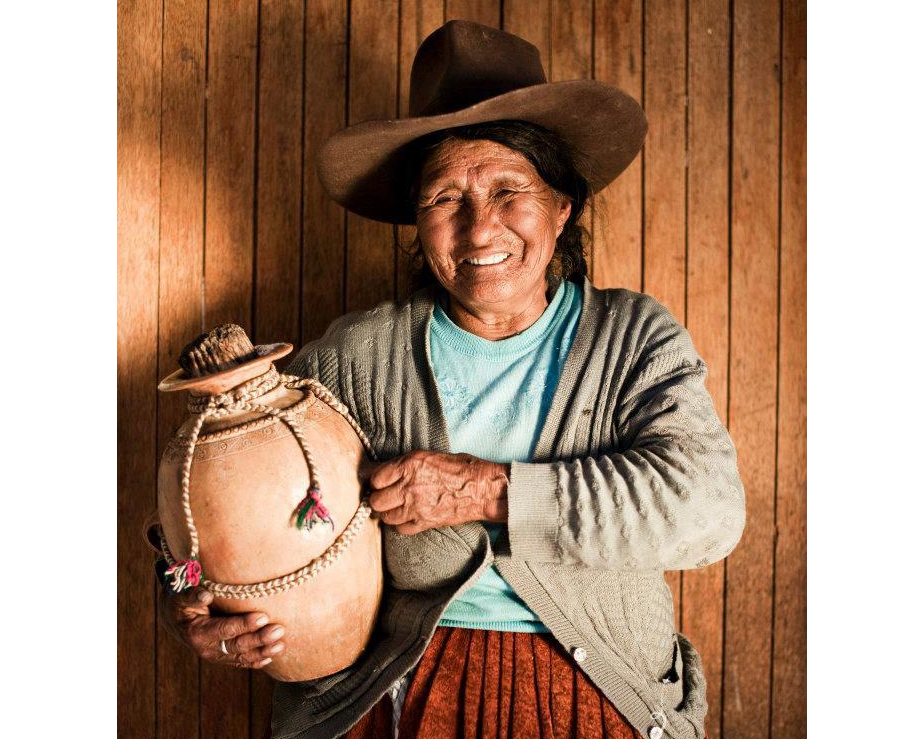

2,500 Peruvian families make tradition a way of life

“My grandma prepared her chicha. She bottled it and sold it,” María Farroñan says, remembering how she learned to make chicha de jora, a traditional beverage in many towns in Peru. She was born in Mórrope, a district in the coastal region of Lambayeque that keeps up the old artisanal traditions.
With a big wooden spoon, she stirs the chicha in an earthenware pot.
“With wood, it used to take us much longer, almost eight hours. But now with gas, we only need four,” she says, referring to one of the changes brought by an MDG-F-supported joint development programme: cooking with gas stoves instead of wood. This simplifies women’s work ands simultaneously helps to preserve the forests.
“Everything was different before. We used to prepare our chicha, but we didn’t make any profit,” comments María.
María’s family is one of 2,500 that participated in the 55 micro-enterprise projects supported by the joint programme in Ayacucho, Cusco, Lambayeque and Puno.
Boosting livelihoods by nurturing small businesses
The programme helped to introduce the businesses to the market, creating three consortiums of artisans. It developed training in inclusive creative industries and businesses in Lambayeque and Cusco, from which 60 professionals graduated. It also established a training programme in Management and Development of Inclusive Creative Industries, which has 98 instructors. In addition, it certified 126 artisans, 26 community rural tourism entrepreneurs and 49 regional cooks in Information and Communication Technology.
Finally, the initiative played an important role in helping to formulate and implement public policies favorable to inclusive creative industries as a means of reducing poverty at the national, regional and local levels.
Empowering women
Through the programme, María’s production association improved the facilities and equipment for preparing and bottling chicha. The development of training for the organic management of their fields of corn, food handling and waste management allowed this group of women to efficiently use their resources and increase their profit, contributing to their empowerment and autonomy in all dimensions of their lives.
“We, too, are beginning to value our work; we feel very proud,” María says with a smile.
Innovative tools for fighting poverty
"Inclusive creative industries: an innovative tool for alleviating poverty in Peru" was part of the MDG-F’s work with governments around the world to reduce poverty and inequalities and to accelerate progress on the Millennium Development Goals,
It was led by the Ministry of Foreign Trade and Tourism of Peru and was implemented by various governmental partners at the national, regional and local levels, and six agencies of the United Nations System – FAO, ILO, WTO, UNIDO, UNDP, and UNESCO – led by the UNDP.
The Peruvian government supported the program by enacting three Regional Ordinances and 12 Municipal Ordinances for the promotion of creative industries.